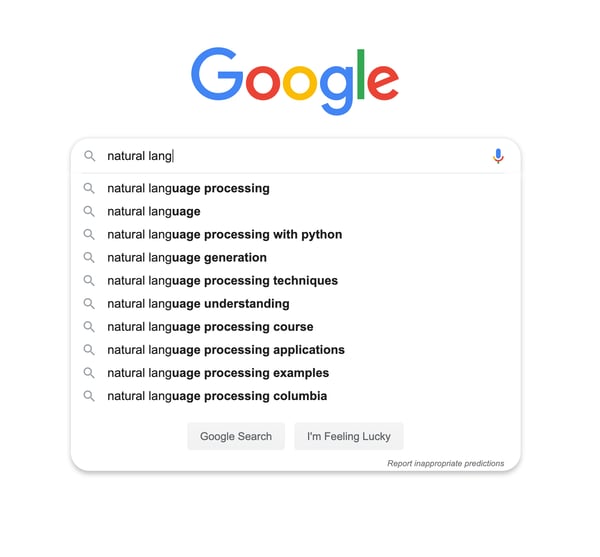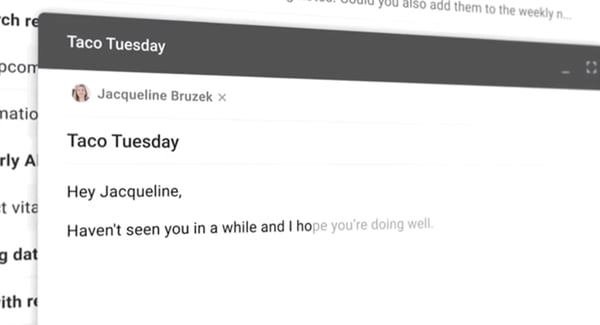There is something I have been thinking a lot about lately that was begging to become this post.
I’ve been researching artificial intelligence as it pertains to marketing and advertising technologies in an attempt to learn how we can better our agency offerings and the campaigns we deliver for our clients.
However, as I dive deeper and deeper into the AI rabbit hole, I’m beginning to notice how present it is in our everyday lives. Now my worries have shifted from “the algorithms will take our jobs” to “the algorithms will strip away our humanity.”
I’ve been noticing just how much AI is automating my life. This thought has consumed me quite a bit lately and has led me to more self-awareness when it comes to technology in general.
To understand how AI inserts itself into our everyday lives, we must first understand where it lives to begin with.
The main subset of artificial intelligence is machine learning (ML). Machine learning is the process of using statistics to find patterns in data and using those patterns to make decisions.
More simply put, it’s all about training computers to become smarter over time.
There are several types of technologies that use AI, things like image recognition, natural language processing (NLP), natural language generation (NLG), and deep learning. All harness the power of AI to develop insights from massive data pools. These insights help inform “smarter,” more precise decisions as the algorithm progresses.

However, as more and more companies like Netflix, Google, Apple, Amazon, and Adobe (to name a handful) begin to use AI to transform their products and offerings, we begin to live an autopilot existence — and that’s scary.
Netflix and Spotify use recommender engines powered by AI to help you decide what to watch and listen to next. They learn your behaviors and interests, and then use that information to recommend similar content. For example, the Made For You playlists on Spotify curate your most-listened-to artists, as well as similar artists to create playlists for you to jam to.
Don’t get me wrong, I love the ease of this, but I remember a time when I used to research artists, learn about them and their backgrounds, give them a listen, and talk with my friends about them.
Much of that seems to have been stripped away by an algorithm that gets to “know” me and my habits. It has diminished the sense of exploration and accomplishment, and replaced it with something that may indeed provide more ease, but ultimately feels hollow.
I’ve been wondering what I’ve been missing by allowing the AI to curate the music it thinks I want to discover.

The unconscious loss of our human subjectivity is even more apparent when it comes to natural language processing and generation. NLP is used to comb through petabytes of unstructured data in order to learn how we speak and write. The computers then turn to NLG to assist in finishing our sentences, recommending how to respond to an email or what to post on social media.
For the most part, we all happily oblige and click what seems like the most appropriate response, or the one what we feel is the most like us.
During this process, though, we lose our uniqueness.
When our responses to things are suggested to us and we accept them, we begin to lose our personality and sense of self. Further, when we decide that the suggestion is good enough and select it, it now becomes our own voice — and that voice pulls us all into a sea of sameness.

NLG is merely at the starting line. We are already at a point where it can suggest an email response that is indecipherable from one written by a human. Things like annual reports, sports recaps, and financial updates are already being written by the bots. With each click to autocomplete a text or a social post, we are giving Apple and Facebook more and more data on what’s appropriate and what we’re okay with as a written response.
These platforms, amongst others, will soon offer up suggestions for original texts or posts. Google Smart Compose will soon draft your email for you based on who you are writing to and your prior emails with that person.
Thus, we will continue to become more and more comfortable with AI becoming our voice, accepting the ease and losing our individuality in the digital world. We could get into the difference between our physical selves and digital selves — because make no mistake, they are indeed two separate people — but I’ll leave that for another post.

My aim with this post is not to scare everyone into not using the autocomplete feature in Gmail or on your iPhone. My wish is to raise awareness — to educate and breed some consciousness around the moment-to-moment choices we make with the technology in our lives.
As everything becomes voice-activated and the bots gain the ability to write like humans, we must make sure that we safeguard our voices and avoid being pulled into that sad, boring sea of sameness.
.png?width=250&height=153&name=CSI-OverskiesRebrand_LOGO-01(smaller).png)

.png?width=100&height=61&name=CSI-OverskiesRebrand_LOGO-01(smaller).png)


.png?width=88&name=CSI-OverskiesRebrand_LOGO-01(smaller).png)



